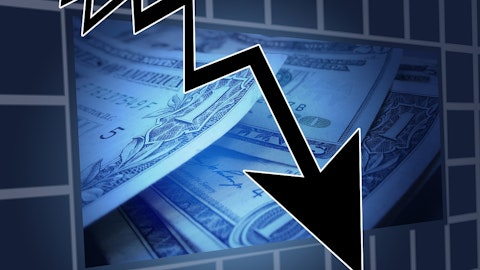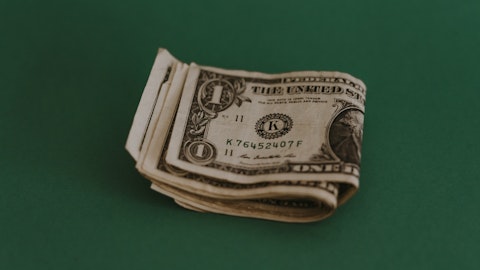We came across a bullish thesis on Starbucks Corporation (SBUX) on Substack by Business Model Mastery. In this article, we will summarize the bulls’ thesis on SBUX. Starbucks Corporation (SBUX)’s share was trading at $81.66 as of May 5th. SBUX’s trailing and forward P/E were 29.69 and 28.17 respectively according to Yahoo Finance.

Starbucks may appear to be a coffee company on the surface, but beneath its iconic green siren lies one of the most precisely engineered consumer habit machines in the world. Its true strength lies in the way it monetizes ritual, repetition, and emotion at scale. Every morning, millions of customers default to their usual Starbucks routine—ordering personalized drinks through a frictionless app experience that not only fuels daily habits but also locks them into a data-rich ecosystem. This habit loop—powered by app users and $1.72 billion in preloaded, interest-free Starbucks Card balances—creates a flywheel of behavioral repetition, customer insight, and recurring revenue. The company doesn’t merely reward loyalty; it builds identity, where app users become members, not just customers—visiting more frequently and spending more.
Starbucks Rewards, responsible for over $15.8 billion in loyalty-linked spending last year, functions as both a behavioral engine and a profit center, outpacing even some banks in transaction volume. This closed-loop system feeds directly into a broader ecosystem where scale and strategy intersect. The company operates 40,199 stores globally, with more than half outside the U.S., and maintains control of 82% of revenue through company-operated locations. In China alone, Starbucks opened 855 stores in a single year, with global expansion carefully tailored to local demand using high-throughput drive-thrus, urban cafés, and pickup hubs. The store network doubles as real estate strategy, placing Starbucks at physical intersections of convenience, visibility, and routine.
On the margin side, Starbucks focuses not on volume but on profitability. Beverages, which account for 74% of in-store sales, boast premium pricing and low cost, while food and merchandise bulk up the average ticket. Licensed stores, representing 48% of locations, enhance margins further by pushing operating costs onto partners while Starbucks earns high-margin revenue from product and equipment sales. Meanwhile, the Nestlé partnership—secured for $7 billion—generates deferred royalty income with virtually no overhead, adding another dimension of capital-light profitability. In a fragmented and competitive industry, Starbucks remains unthreatened thanks to its unrivaled brand power, consistency, and data scale. Its ethical sourcing practices, app-driven behavioral insights, and psychological presence in daily routines create a moat few can challenge. While others chase trends, Starbucks compounds advantages across loyalty, digital, margin, and mindshare. It doesn’t just sell coffee—it sells time, identity, and trust, monetized through one of the most intelligent and elegant consumer systems ever built.
Starbucks Corporation (SBUX) is not on our list of the 30 Most Popular Stocks Among Hedge Funds. As per our database, 84 hedge fund portfolios held SBUX at the end of the fourth quarter which was 76 in the previous quarter. While we acknowledge the risk and potential of SBUX as an investment, our conviction lies in the belief that some AI stocks hold greater promise for delivering higher returns, and doing so within a shorter timeframe. If you are looking for an AI stock that is more promising than SBUX but that trades at less than 5 times its earnings, check out our report about the cheapest AI stock.
READ NEXT: 8 Best Wide Moat Stocks to Buy Now and 30 Most Important AI Stocks According to BlackRock.
Disclosure: None. This article was originally published at Insider Monkey.



